
The PM has just begun speaking after his first National Cabinet meeting

Daniel Hurst
The Australian National University says it will support its academics as they spoke out about the war in Ukraine, after four were included on a list of sanctions announced by Russia overnight.The list of Australians subjected to travel bans announced by Russia includes:
- Professor Brian Schmidt, ANU Vice-Chancellor
- Emeritus Professor Paul Dibb, ANU Strategic and Defence Studies Centre
- Professor John Blaxland, ANU Strategic and Defence Studies Centre
- Associate Professor Matthew Sussex, ANU Strategic and Defence Studies Centre
A spokesperson for ANU said in a statement issued a short time ago:
Earlier this year ANU cut all institutional ties with Russia in response to its illegal invasion of Ukraine. That position remains in place.
Our academics play a pivotal role in helping Australia and the world better understand complex issues every day — including war. We will continue to support our experts to speak about the war in Ukraine and its tragic consequences.
ANU stands with everyone affected by this war.
Sussex also tweeted about being on the list:
Over the past few months, Australia has joined close partners in expanding its own sanctions against Russian political and media figures over the invasion of Ukraine.
PM and premiers to speak soon
The Prime Minister is in Canberra today with First Ministers and will hold a press conference at 11:15AM #auspol
— Political Alert (@political_alert) June 17, 2022
Simon Birmingham admits to ‘missed opportunity’ on energy
Opposition foreign affairs spokesman Simon Birmingham has said the Coalition’s lack of an energy plan was the “missed opportunity of the last decade”.
Birmingham was discussing the Coalition’s failure to establish a framework like the National Energy Guarantee on Sky News this morning, and admitted his government was culpable for some of the issues leading to the energy crisis:
And one of the things that I think was a missed opportunity of the last decade was the type of measures proposed in the National Energy Guarantee.
Which was to make sure we had a framework to reduce emissions and to achieve lower emissions electricity generation but, at the same time, effective obligations to keep reliability in the energy markets as well.
Australian stock market plunges again
The local stock market has plunged again, dropping to its lowest level since November 2020, AAP reports.
The benchmark S&P/ASX200 index was down 177.7 points, or 2.7%, to 6,313.4 at 10.39am AEDT. The broader All Ordinaries was down 2.75% to 6,597.
The plunge came after Wall Street indices retreated further in bear market territory, with the S&P500 falling 3.3% and the Nasdaw down 4.1%.
Overnight, the Bank of England raised its key rate for the fifth time since December, opting for an increase of 0.25 percentage points. Switzerland’s central bank raised rates for the first time in years, with a half-point hike.
“The backdrop for equities right now is about as bad as it gets,” City Index analyst Tony Sycamore wrote in his morning note.
“Central banks determination to break the back of spiralling inflation at the cost of growth likely guarantees a recession during the first half of 2023.”
The ASX200 is down 11.1% so far this month and 13.9% this year.
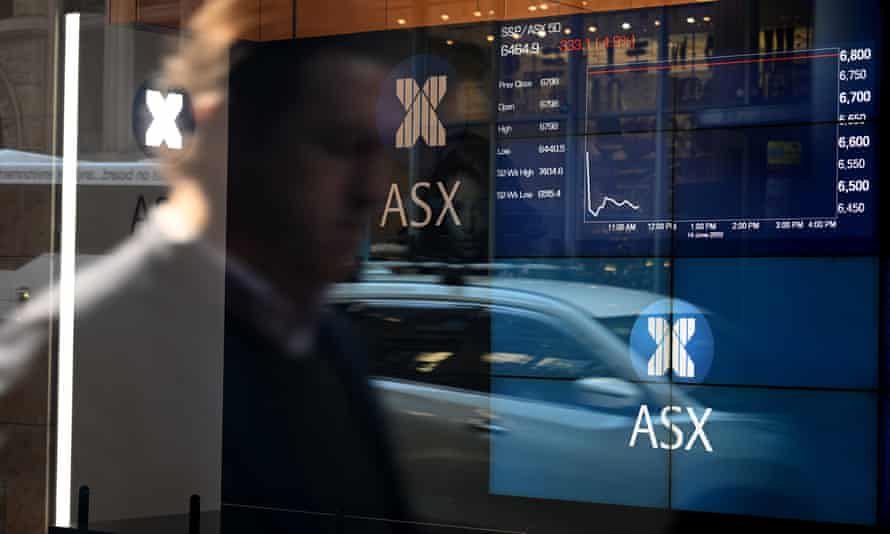
Ed Husic ‘absolutely agitated’ with gas companies
The industry and science minister Ed Husic has backed calls for a domestic gas reserve, saying there should be no supply issue in Australia given the amount of gas exported. He added that a windfall profits tax should be considered as a means of addressing the energy crisis.
Husic told the ABC’s RN Breakfast this morning that he was “absolutely agitated” with the gas companies, saying the government should send a signal that these businesses could no longer burden the public with this crisis:
I’ve got a great deal of sympathy for the view in the broader public that these are Australian resources that should be made available for use by households.
If we’re shipping out of some of our ports seven times the level of supply that is used by the Australian market in one year, it’s not an issue of supply here. This is not an issue that we don’t have the gas. It’s the supply that is available locally at a price that works for industry.
If interest rates were falling and banks were holding on to that and not passing on the interest rate cut to the wider community, one of the arguments we’d be putting is that that’s having an impact on the commercial environment for a lot of other businesses. And we’d be putting pressure on the banks to play ball.
I think we’re in similar sort of territory here with gas companies, and I think they do need to recognise the social licence that exists.
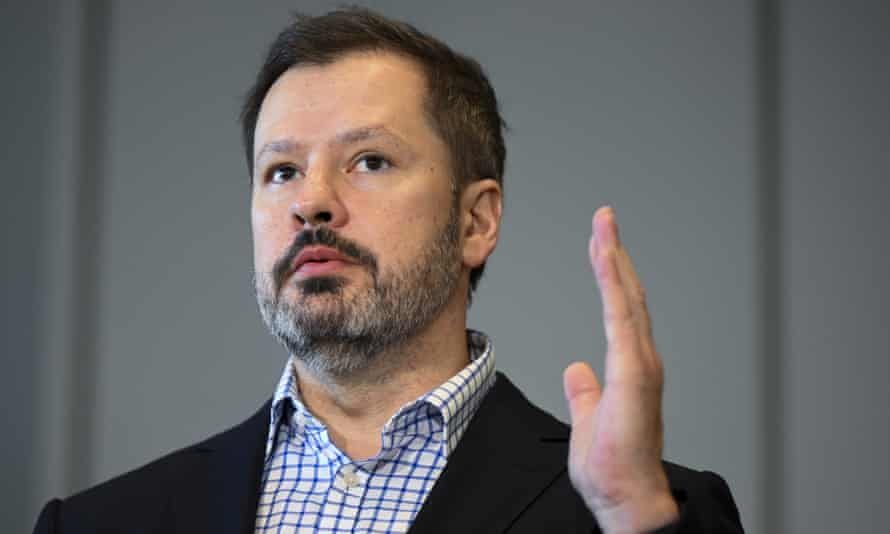
Kean doesn’t expect NSW government will need to use emergency powers
Kean said the powers have been put on standby to use if needed but at the minute “fuel security is fine”:
Obviously fuel security is one thing that we are always focused on. I’ve spoken to each of the energy companies in the last few days and we remain in regular contact with them.
Right now fuel security is fine, but we are just putting those powers … on standby if we need them.
And I should just say we don’t envisage that need will arise at this stage, but we are giving ourselves all the levers that we need to give the community certainty that we are doing everything that we can.
Kean on generators: ‘These are old bits of machinery. They are not as reliable as we would like’
Kean has expanded on the energy situation in NSW, saying that a generator came back online yesterday, and that another generator is expected to come back online tomorrow:
We had a generator come online yesterday. That added 680 megawatts to the system that wasn’t there the night before. Tomorrow we are expecting another generator to come back online, giving us much more reserve capacity. As I said, these are old bits of machinery, they are not as reliable as we would like them to be, particularly when we need them during this time.
We are not just seeing it in New South Wales. We’ve seen generators in Victoria also off line when we need them and also generators in Queensland, so he a challenge which is being faced by all the states and territories in the national entry market.
NSW treasurer says emergency energy powers a ‘proactive step’
NSW treasurer and minister for energy Matt Kean has stepped up for a press conference, and provided some clarity on the special powers activated last night. They give him the power to direct coal companies to provide fuel to electricity generators.
Kean said the Australian Energy Market Operator advised him to activate the emergency powers in the event there was an “unexpected change” to the situation:
We’ve seen problems in Queensland, seen problems in South Australia, seen problems in Victoria and we’ve also seen problems in New South Wales. Aemo have described the energy situation as much healthier, and that’s good news.
With regard to the special powers that we’ve activated, Aemo advised me that we should activate some special powers to have on stand-by if in the event there was an unexpected change to the situation.
We are just taking a proactive step that will support us if there are issues with fuel security, if there are issues with logistics in getting fuel to the site of the generators.
We want to make sure that we have everything in our tool kit to keep the system running and make sure we get through this period.
Josh Butler
Albanese shrugs off prospect of Greens trying to block Labor’s emissions plan
The prime minister, Anthony Albanese, says he’s unfazed by the Greens potentially gearing up to vote down legislation for his 43% emissions reduction 2030 target, claiming the progressive party “haven’t learned” from its 2009 opposition to Kevin Rudd’s carbon pollution reduction scheme (CPRS).
The Labor government will introduce legislation around the expanded emissions scheme when parliament resumes, but Albanese yesterday stressed the legislation wasn’t actually necessary – all but confirming the plan wasn’t up for negotiation.
Labor will need the support of the Greens plus at least one Senate crossbencher to pass legislation in the upper house, and the Greens have been vocal in saying Labor’s 43% plan wasn’t enough, calling for higher targets and a temporary moratorium on new fossil fuel developments in Australia.
Asked on the Today show about whether the Greens may create “rocky times ahead” for the fresh government, Albanese was dismissive.
He said:
The Greens party haven’t learnt from what happened in 2009. I mean … Kevin Rudd and John Howard both went to the 2007 election with similar plans to ratify Kyoto, to have, in that case at the time, it was an emissions trading scheme going forward, and the Greens blocked that proposal and we have had a decade of problems since.
It was a reference to Rudd’s CPRS, a long-running point of contention between Labor and the Greens. Labor has complained that the Greens’ opposition to the plan blocked meaningful Australian action on climate for years, and led to higher emissions; the Greens maintain the CPRS “was bad policy” and pointed to treasury modelling that it would not have led to a reduction in emissions for years, and given handouts to polluters.
On Friday, Albanese shrugged off criticism of Labor’s latest emissions plan.
If the Greens or other parties want to try and block it, well so be it. That will be a matter for them. But we will get on. It doesn’t require legislation,” he said.
It doesn’t have to be legislated. We are getting on with doing it. We’ve signed up to it. Whether it’s legislated or not, is a matter for the Parliament but it’s not necessary to drive this policy.
Albanese accused others of “grandstanding” on the issue.
On Sky News, shadow foreign minister and opposition Senate leader Simon Birmingham declined to commit to whether the Coalition would support or oppose the government’s plan. He said the opposition wanted to see more detail before making a decision.
Secrecy of national cabinet likely to remain, leaders suggest before meeting

Paul Karp
Before the election Anthony Albanese was a fierce critic of national cabinet secrecy.
When he had his own FOI request for national cabinet documents rejected by the department of prime minister and cabinet, Albanese said it was “extraordinary” and accused Scott Morrison of an “obsession with secrecy”.
But based on what the the premiers and chief ministers said on the way into their first formal meeting with Albanese on Friday, it seems the core principles of national cabinet solidarity and secrecy are popular and likely to stay.
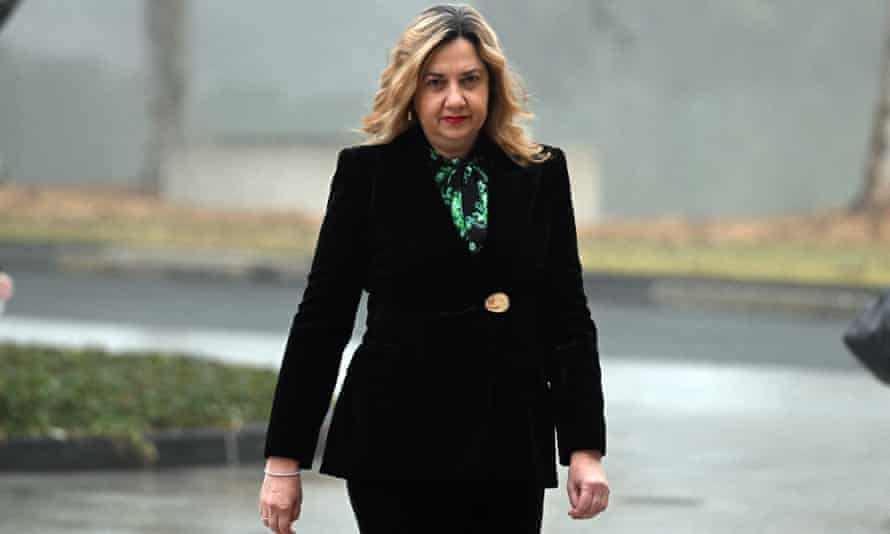
Asked about reforming national cabinet and secrecy, the Queensland premier Annastacia Palaszczuk said:
I think national cabinet is really important. It served the people really well when we dealt with the pandemic for two years … If we keep that format in terms of making decisions in the best interests of the country I think we’ll get a lot of things done.
Tasmanian premier, Jeremy Rockliff, said:
I believe that national cabinet was a good mechanism throughout the pandemic … I’m looking forward to a very collaborative arrangement.
South Australian premier, Peter Malinauskas, dropped a big hint that there might be a rebrand of the body:”
We support the national cabinet model that has been in place for a while. This is the first time I’ve had the opportunity to experience national cabinet and I enter the process with an open mind. The one thing that every Australian knows is this, the nation needs to come together. I do think there is an appetite across the political divide … to work together collaboratively … Whether we call it first ministers or national cabinet, I’m rather non plussed.
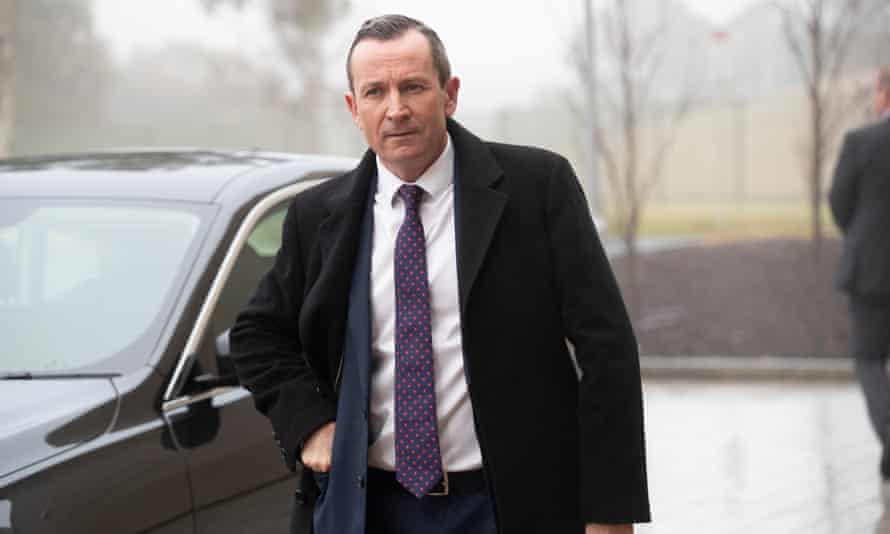
Asked if secrecy and solidarity would remain, Western Australian premier, Mark McGowan, said:
I would expect so … I know people always look for points of difference but it’s actually been pretty good over the last two and a half years. And I certainly support those sorts of things.
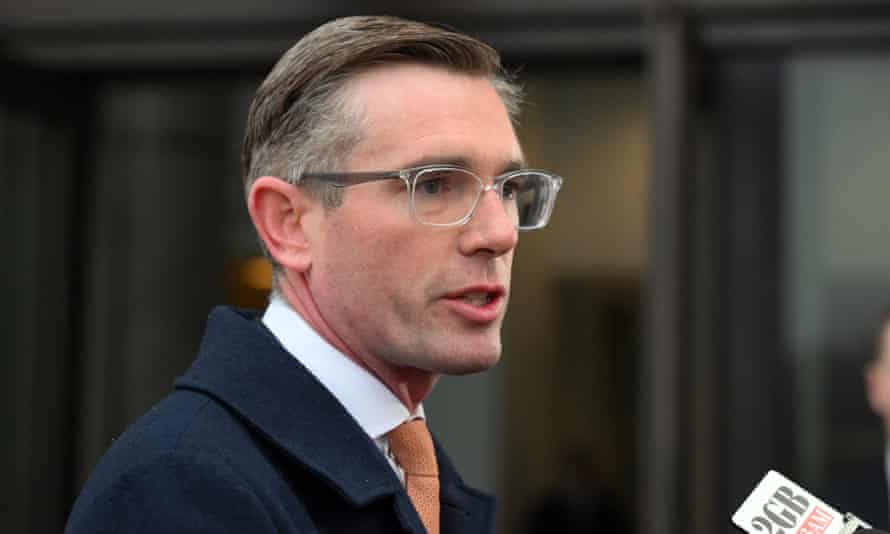
New South Wales premier, Dominic Perrottet, said “I don’t think so” when asked if secrecy would be scrapped. “I think the national cabinet actually worked quite well,” he said, adding that as treasurer he felt it worked better than the Council of Australian Governments.
He said:
As long as the states have buy-in and it’s not an us vs them mentality, which I think it has been in the past, I think we can get some constructive discussions. It’s important, which I’ll be raising today, that the states have capacity to engage and put their own agenda into the national cabinet meeting. it can’t just be a top down approach … that was certainly something all the state premiers and first ministers share that view, and something the prime minister took on board.
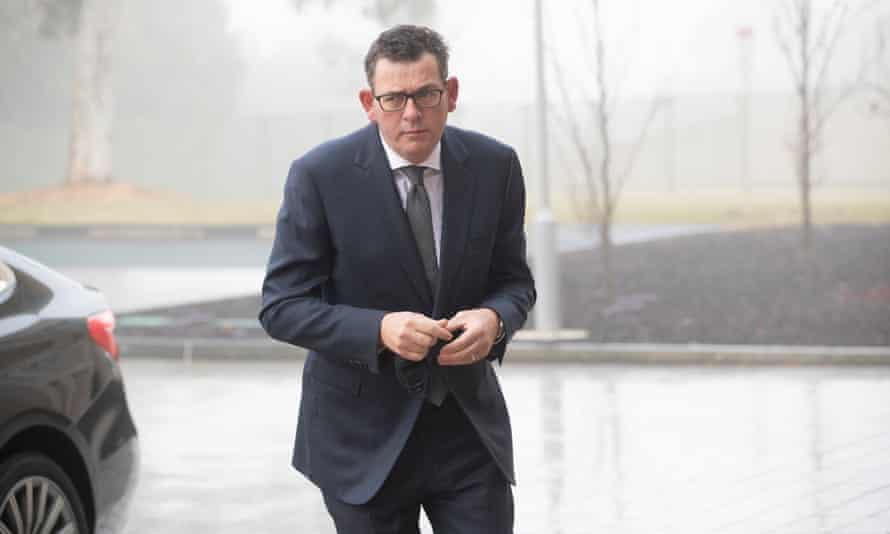
Asked about secrecy and solidarity the Victorian premier, Daniel Andrews, said:
It’s a matter of fact that if you want cabinet government to work you need cabinet rules – they’re the rules that apply to national cabinet and should apply, so we can continue to get things done.
Dutton says Labor ‘unluckiest people in politics’
Opposition leader Peter Dutton has hit out at the Labor government, sarcastically labelling them the “unluckiest people in politics.”
Dutton was on the Today Show with deputy prime minister Richard Marles, and in a heated exchange, said Marles had “no idea” how to handle the energy crisis:
It’s remarkable how Labor always has this bad luck in government in relation to the economy, it all sours on their watch.
The reality is we’re dealing with these issues every day, Ukraine hasn’t just gone to war, they’ve been at war for months, there hasn’t been a problem with energy supply since Labor.
The problem is gas companies have heard Labor say they wouldn’t support gas.
So let’s have a sensible discussion instead of the Labor talking points who just want to blame the previous government.
The distribution of preferences for the QLD Senate count will be undertaken at 4:15 this afternoon.
This will determine the six successful candidates for that election and we’ll post the list here shortly afterwards. #ausvotes
— AEC ✏️ (@AusElectoralCom) June 16, 2022
NSW records 8,355 new Covid cases and 8 deaths
Overnight, NSW has reported 8,355 new cases and eight deaths:
COVID-19 update – Friday 17 June 2022
In the 24-hour reporting period to 4pm yesterday:
– 96.5% of people aged 16+ have had one dose of a COVID-19 vaccine
– 95% of people aged 16+ have had two doses of a COVID-19 vaccine pic.twitter.com/S45eNpyQBK— NSW Health (@NSWHealth) June 16, 2022
SA Premier says he won’t be ‘bullied’ by Putin
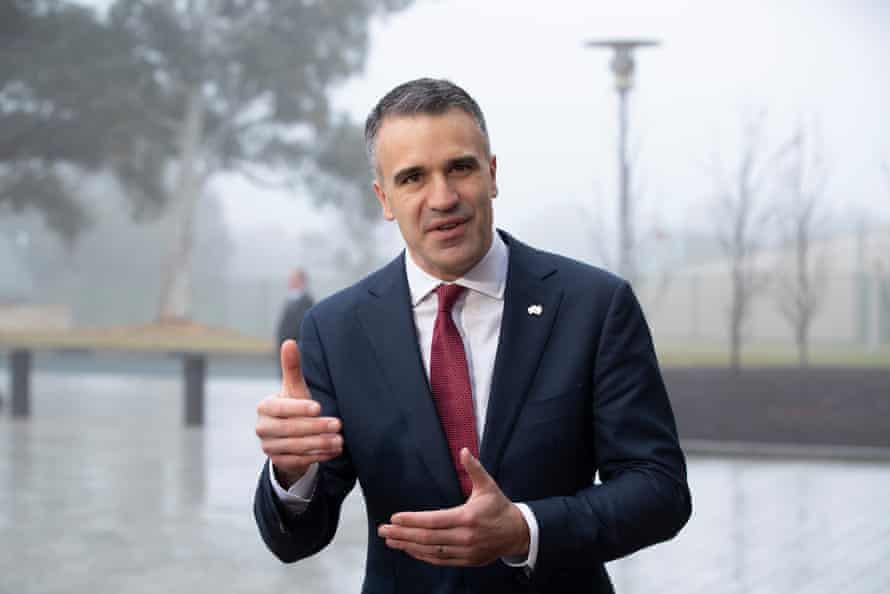
The South Australian premier, Peter Malinauskas, has taken to Twitter to respond to the Russian government’s decision to blacklist him.
He says the move was in response to his government’s “strong stance in standing up for Ukraine”.
Overnight I became the first Premier blacklisted by Vladimir Putin.
It means I cannot visit Russia.
While travelling to Russia wasn’t on my bucket list, it appears this decision has been made in response my government’s strong stance in standing up for Ukraine.
— Peter Malinauskas (@PMalinauskasMP) June 16, 2022
This includes:
– Legislating to ban State Government investment in Russian assets
– Sending medical equipment to Ukraine
– Welcoming Ukrainian refugees and advocating for more— Peter Malinauskas (@PMalinauskasMP) June 16, 2022
Vladimir Putin, I won’t be bullied, the State Government won’t be bullied and I will continue to stand up for democracy.
— Peter Malinauskas (@PMalinauskasMP) June 16, 2022


